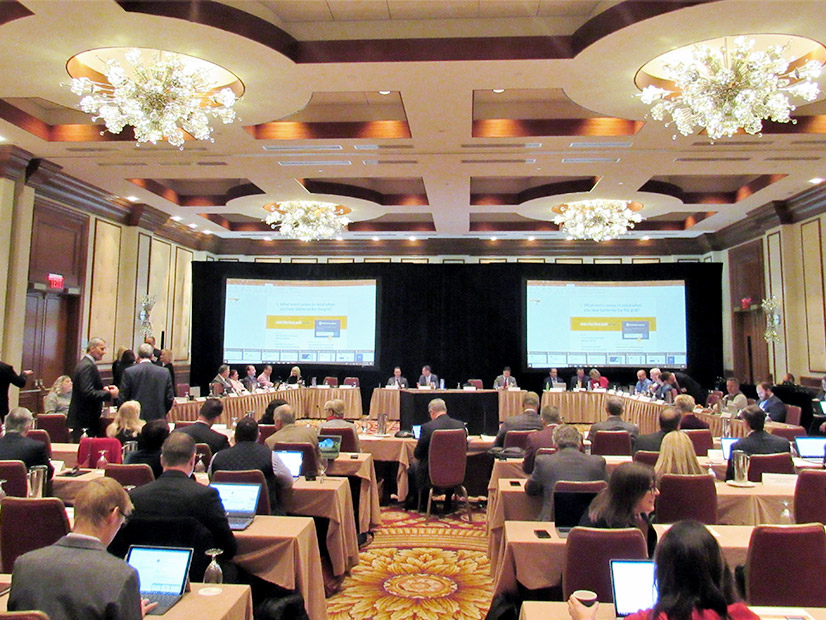MISO members last week overwhelmingly voted to demand more transparency of stakeholders during public meetings.
The Advisory Committee passed rules by a 21-3 margin during its May 19 meeting that will require stakeholders to state their full name and their company before commenting during meetings. Consultants must reveal their client or clients or — if the consultant is working under a nondisclosure agreement — name the MISO sector that best aligns with the client. (See MISO Members Aim for Mandatory Consultant Transparency.)
Planning Advisory Committee (PAC) Chair Cynthia Crane said the measure is designed to give the stakeholder community context behind other stakeholders’ questions and requests of MISO.
“The intent here is to clarify stakeholders’ position, and we do not think this will stifle dialogue,” Crane said.
A small but vocal minority of MISO members disagreed.

“This represents a monumental change to the traditional stakeholder process,” Madison Gas and Electric’s Megan Wisersky told fellow members. “It’s unnecessary, and it serves no practical purpose. Most of us understand the context if we don’t fully know the ‘who.’ We can put two and two together.”
“One incident is insufficient to change statute,” Wisersky continued, adding that the worst laws are usually proposed by politicians after a single event.
Wisersky was apparently referring to Entergy consultant David Harlan’s repeated refusal to divulge his client over multiple PAC meetings in 2019 and 2020. (See Entergy Consultant Under Fire for Covert Role in MISO.)
She said consultants allow companies to pose “non-conforming and political questions” to MISO without fear of being on the “wrong side of a cultural or political idea.”
“We are not immune to that fear at MISO,” Wisersky said.
Clean Grid Alliance’s Natalie McIntire disagreed that the problem only surfaced once and said the example on everyone’s minds was “egregious only because the party was misleading.” She said anonymity through the use of consultants is more common in MISO than some think.
Union of Concerned Scientists’ Sam Gomberg said the new procedures only require “a simple identification” and are not a step to “an authoritarian regime.”
“I have to disagree that this is some sort of move to cancel culture,” he said. “I think this is a critical piece to having open and honest discussions.”
Gomberg said the rules will end an “unfair advantage by consultants to game the conversation and game outcomes through anonymity.” He said consultants can be deliberately misleading about the interests that they represent to try to manipulate the RTO’s stakeholder process.
Tom Butz, senior consultant with Power System Engineering, said he juggles so many clients that it’s difficult to keep track of on whose behalf he might be speaking. Some members also said that when consultants pose clarifying questions during staff presentations, they’re sometimes doing it for their own edification.
Members were less sure about attaching penalties to stakeholders who refuse to name their company or client affiliations. Several said imposing a six-month ban on speaking during meetings — an option kicked around — was too draconian. Others said stakeholder committee chairs during meetings could decline to recognize or mute stakeholders who have refused to disclose who they’re representing.
“These are public meetings,” Wisersky said. “You can’t just ban somebody from a public meeting unless they’re being disruptive.”




